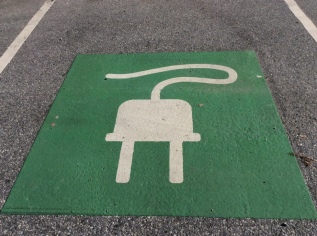Over the last year, a number of papers have been published that directly or indirectly draw upon and extend the idea of epistemic fluency. We are planning to introduce at least some of them on our website. If you have published a paper that speaks to the idea of epistemic fluency and would like to see it shared on our website, please email us.

The first paper on our list is: Bernhard, J., A. Carstensen, J. Davidsen, and T. Ryberg. “Practical Epistemic Cognition in a Design Project–Engineering Students Developing Epistemic Fluency.” IEEE Transactions on Education (2019): 1-10. https://doi.org/10.1109/TE.2019.2912348. (An open-access pre-print is available on this website).
The paper investigates the development of students’ epistemic fluency in situ by tracing, what could be called, students’ epistemic resourcefulness in action using videographic methods. Among other things this paper presents an insightful comparison of some key differences between the scientific practices and engineering practices (pp. 2-3). It also offers a useful approach for tracing and visually presenting the development of epistemic fluency in students’ design teams (see p. 4). The paper ends with a juxtaposition of our semiotic approach for studying epistemic fluency discussed in Chapter 11 (p. 334-337) with a model of knowledge development based on Owen (2007) which sees science primarily as an analytic-symbolic practice, while design as a synthetic real world practice. The authors conclude that, in practice, engineering design requires engaging in a much broader array of epistemic activities:
“Seeing development in terms of developing “actionable knowledge” as well as “knowledgeable action” requires the development of epistemic fluency. Epistemic fluency implies the weaving together of conceptual, physical, epistemological and symbolic spaces to develop an epistemic space.” (p. 8).
Abstract (quoted from the paper)
Contribution: This paper reports engineering students’ practical epistemic cognition by studying their interactional work in situ. Studying “epistemologies in action'” the study breaks away from mainstream approaches that describe this in terms of beliefs or of stage theories.
Background: In epistemology, knowledge is traditionally seen as “justified true belief,” neglecting knowledge related to action. Interest has increased in studying the epistemologies people use in situated action, and their development of epistemic fluency. How appropriate such approaches are in engineering and design education need further investigation.
Research Questions: 1) How do students in the context of a design project use epistemic tools in their interactional work? and 2) What are the implications of the findings in terms of how students’ cognitive and epistemological development could be conceptualized?
Methodology: A collaborative group of six students were video recorded on the 14th day of a fifth-semester design project, as they were preparing for a formal critique session. The entire, almost 6 h, session was recorded by four video cameras mounted in the design studio, with an additional fifth body-mounted camera. The video data collected was analyzed using video ethnographic, conversation analysis, and embodied interaction analysis methods.
Findings: The results show that the students use a wealth of bodily material resources as an integral and seamless part of their interactions as epistemic tools, in their joint production of understanding and imagining. The analysis also suggests that students’ epistemological and cognitive development, individually and as a group, should be understood in terms of developing “epistemic fluency.”
References
L. Markauskaite and P. Goodyear, Epistemic Fluency and Professional Education: Innovation, Knowledgeable Action and Actionable Knowledge. Dordrecht, The Netherlands: Springer, 2017.
C. Owen, Design thinking: Notes on its nature and use, Design Res. Quart., vol. 2, no. 1, pp. 16–27, 2007.

